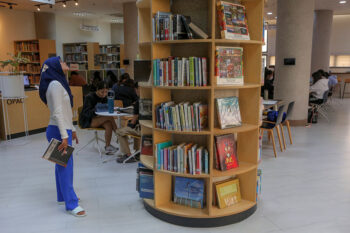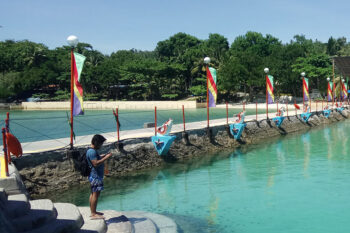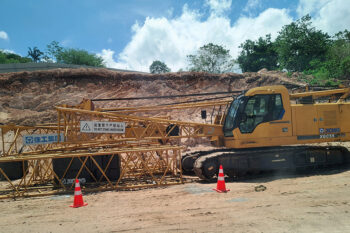NAAWAN, Misamis Oriental (MindaNews / 8 March) – When I was in the grades, one of the first songs I easily learned to sing was “Bahay Kubo.” The song goes:
“Bahay kubo kahit munti
Ang halaman doon ay sari-sari:
Singkamas at talong, sigarillas at mani,
Sitaw, bataw, patani.
“Kundol, patola, upo’t kalabasa
At saka mayroon pang labanos, mustasa,
sibuyas, kamatis, bawang at luya
sa paligid-ligid ay panay na linga.”
Then and until now, every time I hear the song the imagery in my mind is that of a cool small house made of light local materials – of bamboo and nipa shingles, alongside a rice field near a murmuring brook. Now, I love to be entertained by the thought that the small rice field was free of pesticides and acidic fertilizers and the brook was clear of the leaches of those pollutants and thus abounds with fish, shells and shrimps. The range chicken, pigs and vegetables raised by the farming family was organic, that is, free from contaminants of any kind, be it medicines, vitamins or other farm inputs.
Some guys who pretended to be nationalists accused the early American occupiers of idealizing to us this song, so that we remain undeveloped and dependent to the USA on many things we need to survive as a nation.
I believe otherwise. The bahay kubo is a sensible model of a sustainable and self-reliant development. A nation that is self-reliant in food production in a healthy environment is the most advanced and developed of all nations.
The Western model of development that puts heavy emphasis on material consumption is destroying our planet. It is responsible for global warming and the many disasters spawned by climate change we are currently experiencing. Yet, it is the model that is copied everywhere.
As our leaders endlessly hark of lifting the poor from the quagmire of poverty, we need to ask on the model of development they are aiming at. Is it to increase the level of consumption of the people to the leaders’ level, or, perhaps, one-half or even just one-fourth of it?
An authentic Earth and life-saving development demands that people reduce their consumption. It may now be totally impossible for us to go back to a bahay kubo way of life. But it can still be approximated, to begin with a willful honest-to-goodness implementation of an agrarian reform program. The rest which is dominantly in the realm of education and law enforcement will simply follow.
Becoming rich is not a bad aspiration at all. Unknown to many, however, to be rich is not to have more but to have less. The truly rich have very few needs and possess less. Thus they are free from useless worries and unnecessary concerns, and have not much to fear.
Yet the levelling up of consumption has become the game of the day. Consider one from a farming community who turns into an OFW. His parents sold their little farm and work animals so he could leave and pursue his dream.
After a year of toiling in an infernal land, he takes a vacation dragging home a huge TV set, a Karaoke, a microwave, high-end cellular phones for his siblings and a lot of other things to adorn their little house.
An upcoming urbanite who keeps on adding to what he has is seldom aware of what he is up to. Once he buys, for instance, a car he has to spend for its annual registration, insurance, fuel and maintenance. He has to worry about parking, burglary and road accidents. If he would just avail of the mass transit system or take a taxi to his destination, he wouldn’t have to worry most of the above.
The more we have the lesser our freedom will be, the poorer we become. We are possessed or enslaved by what we have.
The worse among the poor are the slaves.
(MindaViews is the opinion section of MindaNews. William R. Adan, Ph.D., is retired professor and former chancellor of Mindanao State University at Naawan, Misamis Oriental, Philippines.)







